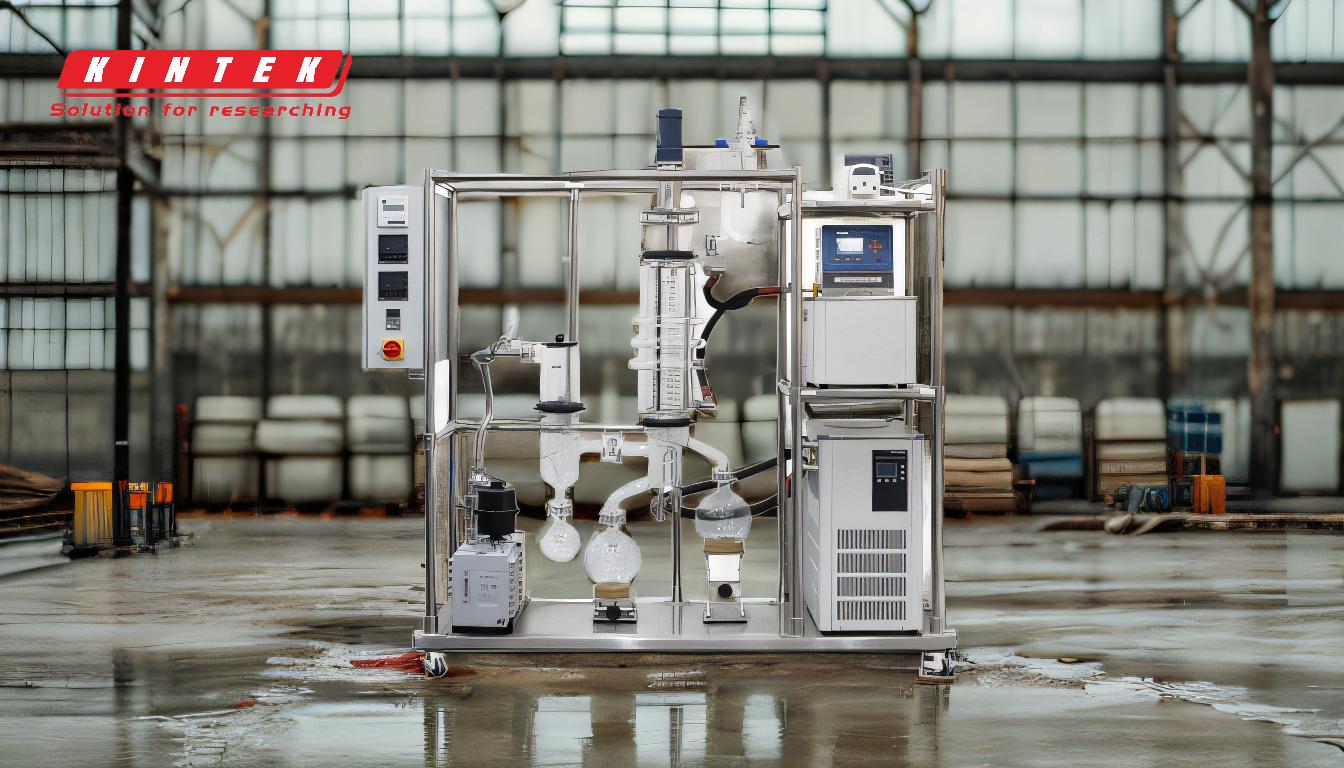Distillation is indeed a process used to purify compounds, particularly in liquid mixtures. It leverages the differences in volatility (ease of vaporization) among the components of a mixture to separate them. By selectively heating and cooling the mixture, distillation allows for the isolation of specific compounds, resulting in a purified product. This process is widely used in chemical labs, industrial settings, and even in the production of high-purity substances like CBD or THC oil. The effectiveness of distillation depends on precise control of temperature, pressure, and feed rates, ensuring the production of a high-quality, purified compound.
Key Points Explained:

-
Definition and Purpose of Distillation:
- Distillation is a mass transfer process used to separate components of a liquid mixture based on differences in their volatility.
- The primary goal is to purify a compound by isolating it from other components in the mixture.
-
How Distillation Works:
- The process involves heating the mixture to vaporize the more volatile components.
- The vapor is then cooled and condensed back into a liquid, resulting in a purified compound.
- This separation relies on the fact that different compounds have different boiling points.
-
Applications of Distillation:
- Chemical Labs: Used to purify solvents or isolate specific compounds for research and analysis.
- Industrial Factories: Employed in the production of chemicals, fuels, and pharmaceuticals.
- Home Use: Common in the production of distilled water or alcoholic beverages.
- Specialized Purification: Used in the production of high-purity substances like CBD or THC oil.
-
Key Factors in Distillation:
- Temperature Control: Precise heating is required to vaporize the desired compound without degrading it.
- Pressure Control: Adjusting pressure can influence boiling points, making the process more efficient.
- Feed Rates: The rate at which the source material is introduced into the distillation system affects the purity and yield of the final product.
-
Advantages of Distillation:
- High Purity: Distillation can produce extremely pure compounds, especially when multiple distillation steps (fractional distillation) are used.
- Versatility: It can be applied to a wide range of liquid mixtures, from simple solvents to complex chemical solutions.
- Scalability: Distillation processes can be scaled up for industrial use or down for laboratory applications.
-
Limitations of Distillation:
- Energy Intensive: The process requires significant energy input for heating and cooling.
- Not Suitable for All Mixtures: Distillation is less effective for mixtures with components that have very similar boiling points or for heat-sensitive compounds that may degrade during the process.
-
Example: Purification of CBD or THC Oil:
- Distillation is used to separate and purify cannabinoids like CBD or THC from plant extracts.
- The process removes unwanted compounds (e.g., waxes, chlorophyll) and concentrates the desired cannabinoids.
- Precise control of temperature and pressure ensures a high-quality, pure final product.
In conclusion, distillation is a highly effective and widely used method for purifying compounds, particularly in liquid mixtures. Its ability to isolate specific components based on their volatility makes it indispensable in various fields, from chemical research to industrial production. However, its effectiveness depends on careful control of process parameters and an understanding of the limitations inherent to the method.
Summary Table:
| Aspect | Details |
|---|---|
| Definition | A mass transfer process to separate components based on volatility. |
| How It Works | Heating to vaporize volatile components, then cooling to condense them. |
| Applications | Chemical labs, industrial production, home use, and CBD/THC purification. |
| Key Factors | Temperature, pressure, and feed rate control. |
| Advantages | High purity, versatility, and scalability. |
| Limitations | Energy-intensive and less effective for similar boiling points. |
Discover how distillation can enhance your purification process—contact our experts today!










